| 2024 EMGS Election |
|
The EMGS Nominating Committee has completed the selection of candidates for this year's election. This year we will be electing a Vice President-Elect and five Councilors. Each of the candidates has
graciously agreed to volunteer their time and energy to serve the Society and its members. If you happen to meet any of them, please take a moment to thank them for being willing to serve our society! The
candidates' biographical summaries can be found below. Please keep in mind that the best way to show support for these individuals is by participating in the election process this October!
Voting Ends Monday, October 21st at 11:59 PM EasternPresidential Candidates
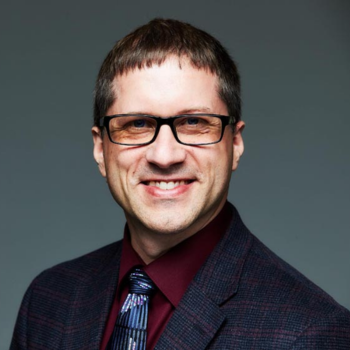
Jeffrey Bemis
Litron Laboratories Dr. Jeffrey Bemis received his PhD in Environmental Health and Toxicology from the University at Albany School of Public Health in Albany, NY. His thesis focused on the effects of combined exposure to the environmental contaminants polychlorinated biphenyls (PCBs) and methyl mercury on central neurotransmitter systems. Jeff then spent three years as a Postdoctoral Fellow in the Department of Environmental Medicine at the University of Rochester School of Medicine and Dentistry in Rochester, NY. Here he investigated molecular and developmental aspects of exposure to PCBs and dioxin using a transgenic reporter mouse model.
Jeff began his work in genetic toxicology when he joined Litron Laboratories in 2006 as a research scientist and is now Director of Clinical Studies. In his current position Jeff serves as a principal investigator for internal research efforts, in-house service work and also manages human studies for clients. Jeff regularly presents at national and international meetings and is an author on over sixty peer-reviewed journal articles and book chapters. Jeff has been a member of the Society of Toxicology for over eighteen years. Jeff served on the Board of Directors for the Genetic Toxicology Association. Here he spent three years on the program committee for the annual meeting and chaired the committee for two years. For the Environmental Mutagenesis and Genomics Society Jeff served twice as Program Chair, was a Council Member, served as the first New Technologies Champion and Co-Chaired the Education, Student and New Investigator Affairs committee. Additional Information: I will not be able to attend the 2024 Palm Springs meeting due to a family medical issue, but I will be there in spirit.
Leslyn Hanakahi
University of Illinois, Chicago I am running for EMGS president because I am passionate about the mission of EMGS and continuing to promote the inclusivity and research goals of our society. I earned my BS at the University of Hawaii and my PhD from Yale University, and did postdoctoral training at the UK Imperial Cancer Research Fund. As an assistant professor at the Johns Hopkins University, I laid the foundation for my research career in DNA damage and repair. I am now an Associate Professor at the University of Illinois Chicago. 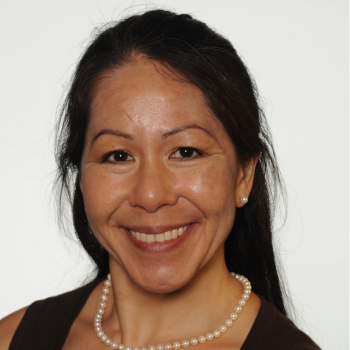 I joined EMGS in 2010. In 2012, I was elected co-chair of the Education and Student New Investigator Affairs (ESNIA) subcommittee and worked to promote opportunities and mentorship for future scientific
leaders within EMGS.
Driven by a commitment to inclusivity and in response to the “bathroom bill” of 2016, I established the Diversity, Equity and Inclusion (DEI) subcommittee in 2017. This endeavor aimed to cultivate a culture of diversity and belonging within EMGS, ensuring all members feel valued and empowered. As co-chair of the Membership and Professional Development (M&PD) committee, I have continued my efforts to make EMGS a society that fosters belonging and promotes development and advancement opportunities for its members. I have expanded membership engagement, enhanced professional growth opportunities, and bolstered member retention and recruitment efforts. My dedication to these endeavors underscores my commitment to fostering a vibrant and inclusive scientific community within EMGS and serving its mission of being a critical source of information about environmental hazards and their public health impact.
Councilor Candidates
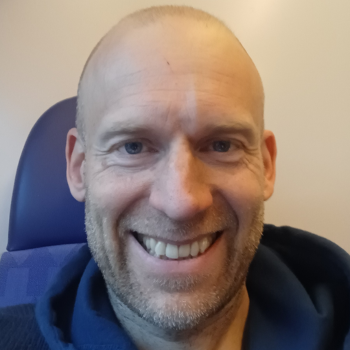
Jonatan Axelsson
Reproductive Medicine Centre, Skåne University Hospital, Malmö, Sweden Having graduated as a medical doctor in 2003, I became a specialist in Occupational and Environmental Medicine in 2013 and defended my PhD thesis in 2015 at Lund University, Sweden, on a project on own and parental exposure to smoking and phthalates, and parameters of male reproductive function. Finding a lower sperm count in sons of smoking fathers, I got interested in potential effects of paternal smoking on the offspring and got funding to try to study if smoking med had an elevated number of
mutations in sperm DNA.
I found the EMGS and the Germ Cell and Heritable Effects Special Interest Group, of which I became a member, and at later stage SIG representative in the EMGS Program Committee, and SIG chair. My interest led to a postdoctoral project at the University of Ottawa in collaboration with Health Canada during 2022, with Dr Carole Yauk and Dr Francesco Marchetti as supervisors. This was based on the use duplex sequencing to find mutations in germ cells, such as in a pilot study to find mutations in blood and sperm in men from the general Swedish population. The frequency and spectrum of mutations in sperm DNA were both in line with what has been reported from trio sequencing studies. Additional funding has now enabled a recruitment of additional men from whom sperm DNA will be sequenced. Finding EMGS to be such a friendly and encouraging society with a lot to learn from, I would feel happy to contribute to the work of the EMGS council.
Ryan Barnes
University of Kansas Medical Center (KUMC) Dr. Ryan Barnes is a new Assistant Professor at the University of Kansas Medical Center. He has been an EMGS member since 2018 and has served as young investigator Co-Chair for the DNA Repair SIG and the 2024 Program Committee. He has presented at several EMGS meetings and has been very activate in our community. Ryan received his PhD from Pennsylvania State University in the lab of Dr. Kristin Eckert studying DNA polymerase biochemistry and DNA replication stress.  He did his postdoctoral training with Dr. Patricia Opresko at the University of Pittsburgh working to develop and study models of telomere specific oxidative DNA damage. During this time Ryan received an F32 from
the NIA and K99/R00 from NIEHS and Co-chaired a DNA damage Gordon Research Seminar.
In August of 2023, Ryan launched his independent career in the Department of Cancer Biology at KUMC. Here Ryan is developing models to study chromatin specific oxidative stress and its impact on genome stability and DNA replication. Ryan is passionate about expanding our outstanding community and has been working to introduce EMGS to other young researchers. Moreover, he is growing his lab with a diverse group of scientist he can encourage to join EMGS. EMGS has been a boon to Ryan's career and development and he is excited to give back to this society however he can. 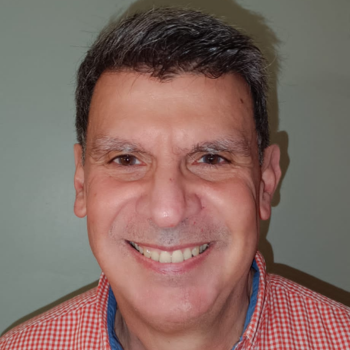
Michael Fasullo
University at Albany My research has focused on investigating how eukaryotic cells maintain genetic stability after exposure to radiation and chemical carcinogens. I earned a Ph.D. at Stanford University and was an American Cancer Society Fellow at Columbia University. I obtained an independent faculty position at Loyola University before moving to State University of New York at Albany. By constructing yeast strains to quantify frequencies of specific rearrangements, my group identified roles of the G2/M checkpoint in suppressing radiation-associated chromosomal translocations and the role
of maintaining deoxynucleotide levels in suppressing replication-associated rearrangements.
To evaluate the genotoxicity of metabolically active forms of aflatoxin and heterocyclic aromatic amines, my group introduced human cytochrome P450 genes into budding yeast strains. We profiled the yeast genome for resistance to aflatoxins and heterocyclic aromatic amines by next generation sequencing of molecular barcodes and bioinformatics, and identified genes that function in tolerating carcinogen-associated DNA damage. Efforts are now focused on profiling the mammalian genome for carcinogen resistance and expanding the use of non-animal models in genotoxic testing. These studies resulted in over 40 peer review publications, supported by National Institutes of Health. I am an avid member of the Environmental Mutagenesis and Genomics Society to foster scientific communication and collaboration. As a member of the Awards committee, I support efforts to acknowledge the contributions of senior members as well as young investigators as they start their careers. Additional Information: I joined EMGS in 1995 and was selected to attend a conference on personalized medicine in Romania in 2019.
Xiaoqing Carole Guo
NCTR, US FDA Dr. Xiaoqing Guo is a Research Biologist in the Division of Genetic and Molecular Toxicology (DGMT) at the National Center for Toxicological Research (NCTR)/Food and Drug Administration (FDA), USA. She has 20+ years scientific training and research experience in the field of cancer research, genetic toxicology, general toxicology, and molecular biology. 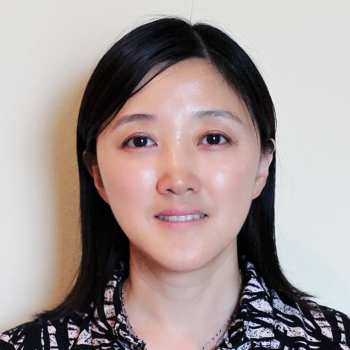 Since joined the DGMT/NCTR in 2008, Dr. Guo has been working on the evaluation of the mutagenicity of chemicals of FDA regulatory interest using genotoxicity assays including in vitro mouse lymphoma assay (MLA), the micronucleus
(MN) assay, the comet assay, error-corrected next generation sequencing (ecNGS), as well as in vivo mutation assays and pathway-based mechanistic study. Her current research interest is to develop and validate in vitro
new alternative methodologies (NAMs) using human-derived metabolically competent cells for genotoxicity testing.
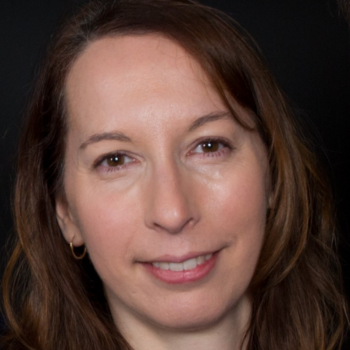
Annie Hamel
Charles River Laboratories With her background in biology, specialized in human and animal physiology and toxicology, with 20 years of CRO experience, including 14 years more specifically in applied genetic toxicity testing, Annie has experience directing over than 400 in vitro and in vivo safety genetic toxicology assessment studies. She has high experience in the in vivo assays, the comet assay field, in vitro 3D cell culture models and organ-on-chip microfluidic system. She was responsible of development and implementation of new assays in addition to software validation for automation implementation. She highly cares about animal’s welfare by being for long time on the IACUC committee and her interest in innovative methodologies to decrease animal usage. She was also involved in improving current processes and
involved in innovation projects as the application of better solutions to regular assays. She currently fills the Scientific Director role of the Genetic Toxicology department at Charles River Laboratories Senneville
site, Canada.
Cheryl Hobbs
Inotiv Dr. Cheryl Hobbs, Director of Genetic Toxicology at Inotiv, has career experience spanning ~45 years, primarily related to genetic toxicology, gene regulation, and epigenetic mechanisms of disease and toxicity. Since joining ILS (now Inotiv), she designed, performed, directed, and provided scientific oversight for the conduct of genetic and general toxicology testing for government and commercial clients, and contributed to various efforts aimed at developing/validating new chemical screening assays and integrating new technologies into genetic toxicity testing. 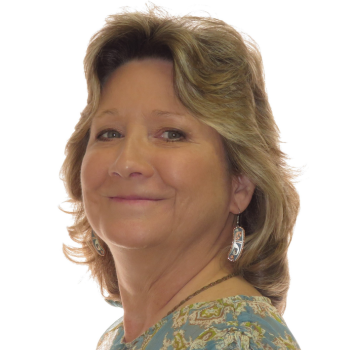 Dr. Hobbs led ILS’ participation in the JaCVAM validation of the in vivo comet assay and served on the expert working group for the Pig-a mutation assay, leading to new OECD test guidelines, and is directing Inotiv’s participation
in multi-organization efforts to validate ecNGS technology for mutagenicity assessment. Prior to joining ILS, Dr. Hobbs was a Scientist at the Lankenau Institute for Medical Research, where she previously did her postdoctoral
training. Before obtaining her doctorate, she was a molecular biologist supporting cancer research at the Fox Chase Cancer Center and drug discovery programs at Sterling Winthrop. She attained her B.A. in Biological
Sciences and Computer Science from the University of Delaware and her M.S. and Ph.D. degrees in Bioscience and Biotechnology from Drexel University. Dr. Hobbs has been a member of several scientific societies, including
EMGS (since 2007), GEMS (Board of Directors), and AACR. She currently serves on the editorial board of Mutation Research (MRGTEM), the SEND GeneTox team, and multiple HESI/GTTC subgroups.
Additional Information: As I approach retirement (bittersweet emotions), this may be the last year for me to offer my 3-year service to EMGS in a Councilor role before my window of opportunity closes. 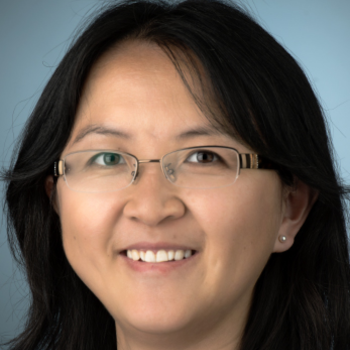
Hong Ji
University of California, Davis Dr. Hong Ji has over two decades of expertise in molecular biology and genomic research. She earned her Ph.D. in Biological Sciences from Vanderbilt University, utilizing yeast genetics to understand telomere length regulation, which plays critical roles in aging and cancer. Following her doctoral studies, Dr. Ji embarked on a postdoctoral fellowship in molecular immunology at Johns Hopkins School of Medicine, focusing on epigenetics' role in hematopoiesis and cancer. During her tenure at Cincinnati Children's Hospital Medical Center, Dr. Ji has developed a research program on epigenetic regulation in allergic diseases and established a core service for epigenomic research. Currently,
Dr. Ji is a tenured professor at the University of California, Davis, where she tries to understand the influence of environmental factors such as allergens, air pollution, and wildfire smoke on the epigenome
and chromatin, particularly in asthma and other lung diseases.
Currently serving as the Program Representative for the Epigenomics SIG on the program committee, Dr. Ji advocates for balanced and high-quality content related to epigenomics and human health at annual meetings. Committed to fostering diversity in the scientific community, Dr. Ji champions the integration of cutting-edge technologies into research inqueries. Running for Counselor, Dr. Ji seeks to coordinate with fellow members in shaping the society's strategic direction and fostering collaboration. She is dedicated to empowering scientists to make meaningful contributions to society and looks forward to continuing her journey of exploration and discovery with the EMGS.
Yuan Liu
Florida International University Dr. Yuan Liu is an associate professor at the Department of Chemistry and Biochemistry at Florida International University (FIU). Dr. Liu’s research focuses on understanding the molecular mechanisms of DNA base excision repair (BER) in modulating genome stability through the DNA repair crosstalk with epigenetics and epitranscriptomics. Her recent research has led to the discovery of an RNA-guided DNA base damage repair and the crosstalk of BER with histone methylation in regulating trinucleotide repeat instability. 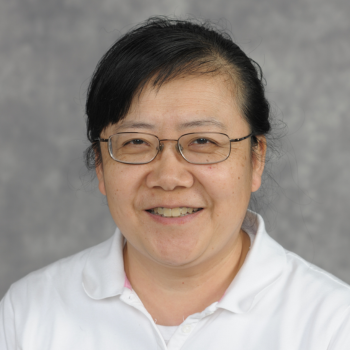 Her current research is working on understanding the mechanisms of a gene-targeted contraction of the expanded GAA repeats using CRISPR/dCas9-based systems for developing the treatment of inherited neurological disease
Friedreich’s ataxia. Her group is also studying the interplay of BER and oxidative DNA and RNA damage in modulating N6-methyladenosine (m6A) on RNA in maintaining the integrity of the genome and epitranscriptome. Dr.
Liu’s research is supported by NIH. Her research work has been published in Nature Communication, Nucleic Acids Research, DNA Repair, and JBC, among others, and led to four patents that has been granted. Dr. Liu served
as the Director of Biochemistry Ph.D. Program at FIU in 2017-2022. She was the 2014 Top Scholar of FlU. She was also awarded the 2016 FIU College of Arts, Science, and Education (CASE) Award of Research, 2018, 2020,
and 2023 CASE Award of Service. Dr. Liu was also the awardee of the 2024 FIU University Graduate School Excellence Award for Mentorship of Graduate Students.
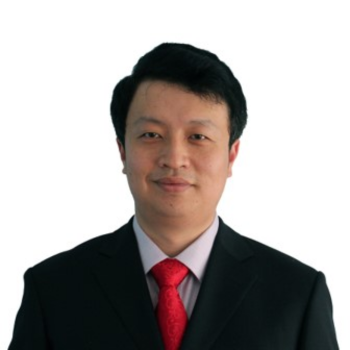
Shaofei Zhang
Pfizer Dr. Shaofei Zhang graduated from University of Tennessee, Knoxville in 2011. After graduation, he spent nine years in the National Cancer Institute with his research focusing on cancer genomics and epigenetics. Dr. Zhang is currently a senior principal scientist at Pfizer’s Drug Safety R&D group, focusing on the safety assessment of different compounds during the drug development with traditional and emerging scientific tools. Before joining Pfizer, Dr. Zhang spent one year at BioReliance, where his primary responsibility was the tech transfer of Duplex Sequencing to replace the gold standard Big Blue assay. In addition to co-chairing EMGS
In Vivo Mutagenesis (IVM) Special Interest Group (SIG), Dr. Zhang also serves as a co-chair of HESI GTTC ecNGS workgroup, with a goal to promote the application of ecNGS in the safety assessment and acceptance of
this new technology by regulatory agencies.
Endowment Fund Board Chair Candidates
Bret D. Freudenthal
University of Kansas Medical Center 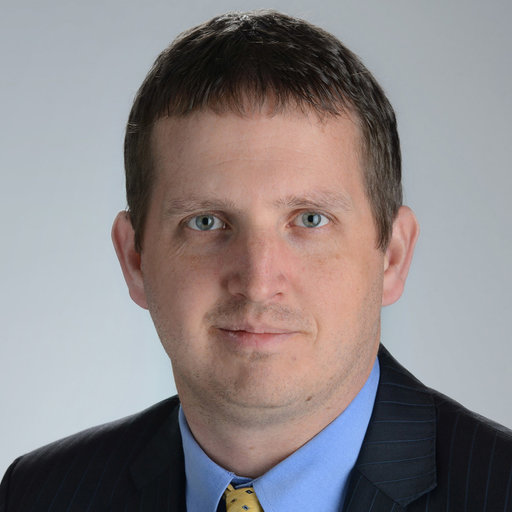 |
11/28/2023July 2023 EMM Editor's Choice Article
10/30/2023March 2023 EMM Editor's Choice Articles
10/12/2026 » 10/14/2026
2026 EMGS Virtual Annual Meeting
 2025 EMGS Program Chair
2025 EMGS Program Chair